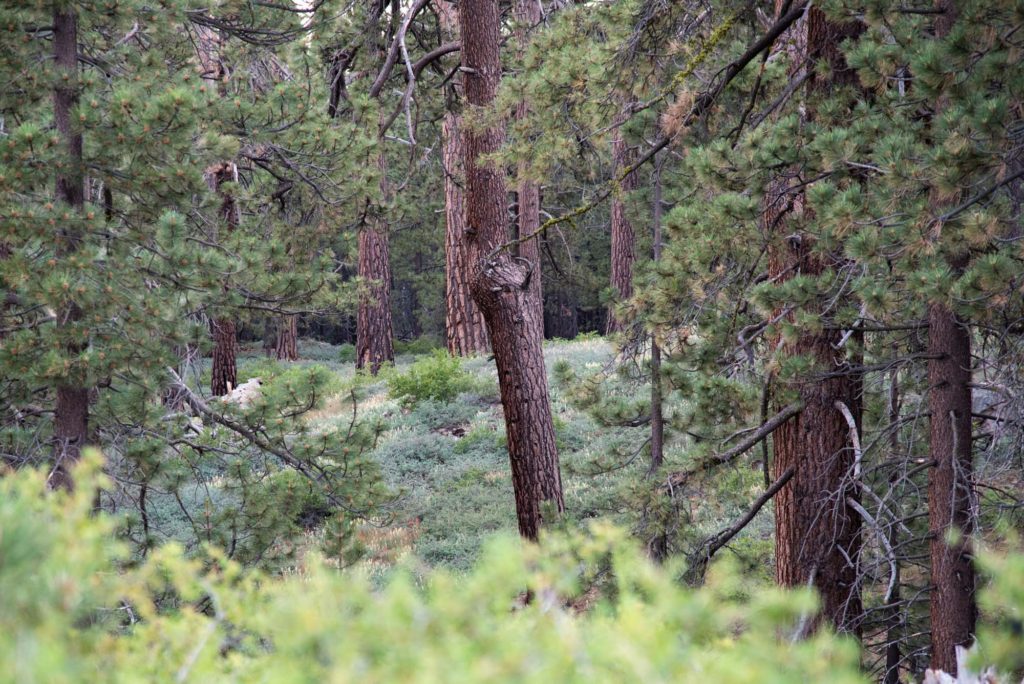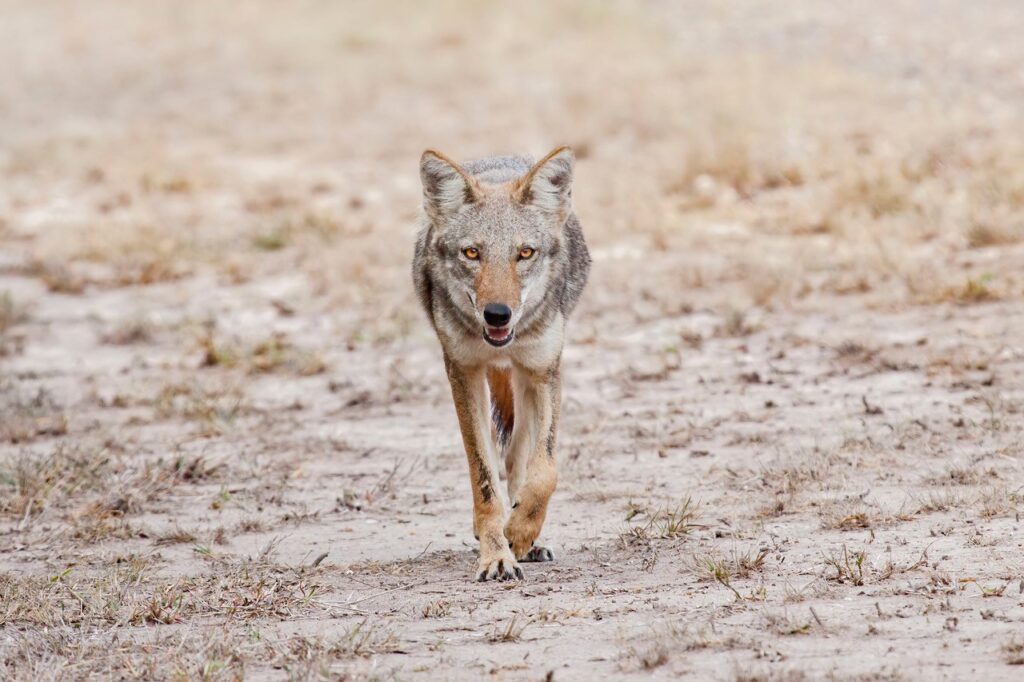
The Forest Service recently delayed a final decision on a controversial logging project proposed for the top of Mt. Pinos in Los Padres National Forest. The project has been postponed four times amidst widespread opposition and is now scheduled for approval in December 2022.
First announced in 2019, the project allows the cutting and removal of thousands of mature trees across 1,682 acres atop Mt. Pinos—a culturally important mountain for local Indigenous people, popular recreation destination for outdoor enthusiasts across the region, and home to several sensitive plants and animals.
The project would allow removal of mature trees up to two feet wide in diameter across 2.5 square miles, along with even larger trees in certain circumstances. The Forest Service intends to use a controversial loophole to bypass requirements under the National Environmental Policy Act (NEPA) to conduct a detailed study of potential impacts to the area’s unique ecosystems and to examine less-damaging alternatives. The use of the loophole also limits the public’s ability to voice concerns and eliminates the official objection process that helps reduce the potential for litigation.
During a 30-day comment period last year, more than 2,400 people submitted comments opposing the logging plan. Several tribes, environmental groups, elected officials, and local residents expressed concerns.
The mountain is historically and currently central to Chumash culture as the place where the world’s equilibrium is maintained. The project area is cradled by the Chumash Wilderness and near the eastern head of the well-known Tumamait Trail, named for Vincent Tumamait, a Chumash elder, conservationist, and storyteller.
Tribes and tribal representatives expressed serious concerns with the project during the scoping period. The Chalon Indian Council of Bakersfield and the Amah Mutsun Tribal Band of Costanoan/Ohlone Indians highlighted the spiritual and cultural importance of ‘Iwɨhɨnmu (Mt. Pinos) and requested additional environmental studies and a thorough, transparent process. The Kern Valley Indian Community also objected to the project, as did Julie Tumamait, Vincent’s daughter. The Santa Ynez Band of Chumash Indians requested consultation and expressed concern for impacts to this traditional cultural landscape. The Wishtoyo Chumash Foundation “opposes the proposed Project for the potential negative impacts to natural cultural resources vital to Chumash Peoples, sites of cultural importance, old growth chaparral and mixed coniferous forest, and sensitive and endangered species.”
Local elected officials expressed concern about the project as well. Congresswoman Brownley wrote, “In my view, federal projects should undergo rigorous review to ensure the best available science and data is used, and we must also take care to protect threatened and endangered species. For these reasons, I hope the U.S. Forest Service will commit to undergoing a thorough Environmental Assessment or Environmental Impact Statement on this project.” Congressman Carbajal submitted a letter requesting preparation of an environmental assessment or environmental impact statement. Ojai Mayor Betsy Stix and Ventura County Supervisor Carmen Ramirez also submitted letters of opposition.
Twenty-three local environmental and community organizations submitted a joint letter outlining their concerns with the project as well.
Like other similar projects, there were very few letters of support submitted during the scoping period. We could only find about one dozen letters of support in the project record. Sierra Forest Products, a company that operates a logging mill just two hours away from the project site, wrote that they “strongly support” the project. In addition, the American Forest Resource Council—the lobbying arm of the logging industry—also submitted a letter of support.
The Forest Service is required by law to approve the project using a “collaborative process” but to date, officials have only conducted two public meetings in 2019. During those meetings, foresters offered to schedule additional field trips with the public to provide them with data and solicit further input onto the early design of the project. No such field trips have been scheduled, and with a decision planned soon, the prospect of additional public input seems unlikely.
ForestWatch and our Indigenous and conservation partners will continue to advocate for the protection of Mt. Pinos and other mature and old-growth forests in our region.







Comments are closed.